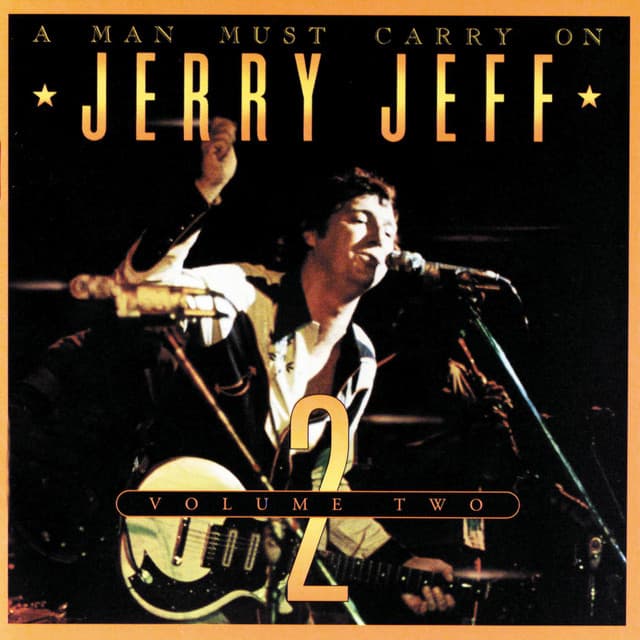
A testament to endurance, memory, and the quiet resilience that marks the long road of a troubadour’s life.
In 1977, Jerry Jeff Walker released the double-LP A Man Must Carry On, with Volume Two serving as the more reflective half of the project—a collection that did not chase chart positions and was never shaped for radio success, but instead captured the intimate spirit of an artist who had already carved his place in American songwriting. Folded into this second volume is a mosaic of live moments, spoken interludes, and tender performances, each contributing to the album’s uniquely narrative form. While traditional chart metrics do not define this work, its presence within Walker’s catalog stands as a document of a musician reaching back through his past while speaking quietly to the future.
The heart of A Man Must Carry On, Volume Two lies not in commercial ambition but in its format: a living scrapbook. Walker, long known for blurring the line between performer and storyteller, assembles a sequence of pieces that feel like they were stitched from the road—dusty bars, late-night green rooms, long drives between towns. This volume reflects a man who understood that songwriting is not simply the act of arranging words to melody, but the shaping of a lifetime into fragments that can be heard, revisited, and carried forward.
The title itself becomes a thesis. “Carry on” in Walker’s world is not a heroic march but a gentle, persistent step: the way a musician shoulders memories, failures, friendships, and fleeting moments of grace. Throughout Volume Two, the arrangements lean toward the unvarnished and the conversational. Acoustic textures, modest accompaniment, and Walker’s unmistakable drawl create an atmosphere closer to a campfire than a studio. The listener is invited not merely to hear the music but to inhabit it—sitting beside a man sorting through the stories he has lived.
What makes this volume especially compelling is its emotional architecture. Rather than presenting a neat collection of songs, Walker offers a sequence that moves like a memory: nonlinear, textured, shaped by feeling rather than chronology. His voice—weathered, affectionate, and occasionally wry—becomes the binding element. It is the sound of someone who has traveled enough miles to know what endures: companionship, humor, loss, and the quiet insistence to keep going even when the road grows dim.
The cultural legacy of A Man Must Carry On, Volume Two rests in its honesty. It is a reminder that the troubadour tradition thrives not on spectacle but on sincerity. Walker’s work here stands as an artifact of a particular moment in Americana: when a songwriter could present his life not as myth, but as a series of small, unguarded truths. And in doing so, he left behind more than a record—he left a companion for anyone who, in their own way, must carry on.